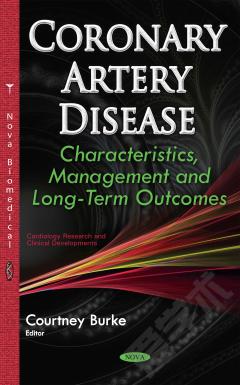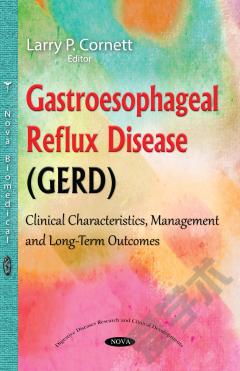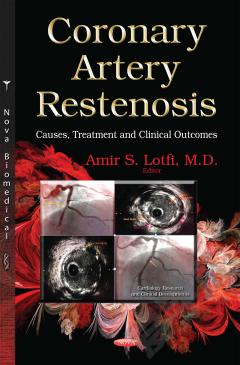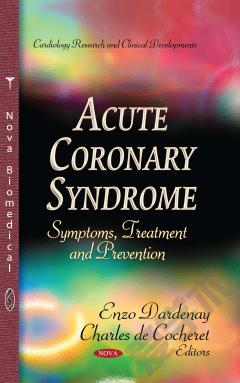Coronary Artery Disease: Characteristics, Management and Long-Term Outcomes
Coronary artery disease (CAD) is a leading cause of mortality and morbidity worldwide. In approximately half of the patients with newly diagnosed CAD, the first presentation is either acute myocardial infarction or sudden cardiac death. This book provides current research on the characteristics, management and long-term outcomes of coronary artery disease. Chapter One begins with an overview of biological characteristics, clinical classification, and spasms of arterial grafts and antispastic management in coronary artery bypass grafting surgery. Chapter Two discusses coronary artery bypass grafting (CABG) and percutaneous coronary intervention (PCI) in the current era, and highlights relative strengths and weaknesses of each approach. It also discusses various risk-stratification scoring systems, and consider both procedures in the context of different demographic populations, including advanced age, gender, acute coronary syndromes, previous CABG, renal failure, diabetes mellitus and left main involvement. Chapter Three focuses on contribution facts and fables of gender disparities in cardiovascular diseases. Chapter Four examines the role of multi-detector computed tomography in the detection of subclinical coronary atherosclerosis in patients without known CAD.
{{comment.content}}








 京公网安备 11010802027623号
京公网安备 11010802027623号